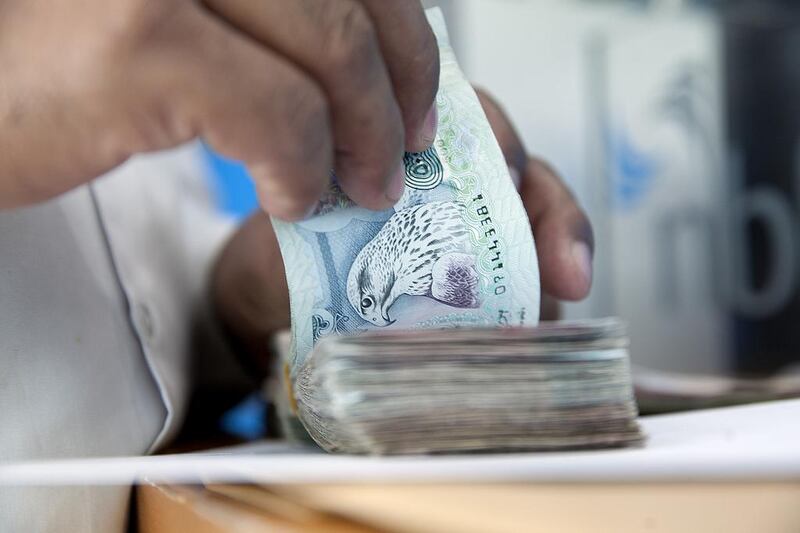The UAE has approved an anti-money laundering law that will combat terrorism financing and a foreign investment law that will treat foreign companies as it does local companies.
President Sheikh Khalifa issued the two decrees.
“This decree is a fundamental pillar of anti-money laundering and countering the financing of terrorism, and contributes to raising the effectiveness of the legal and institutional framework of the nation to achieve desired results,” said Sheikh Hamdan bin Rashid Al Maktoum, Deputy Ruler of Dubai and Minister of Finance.
“This law aims to combat money-laundering and to establish a legal framework that supports and strengthens the efforts of the relevant authorities in the nation in countering money-laundering and related crimes. The law also counters financing of terrorist operations and suspicious organisations, which enhances the UAE’s commitment to international recommendations and treaties.”
The UAE has been issuing a series of laws to boost the competitiveness of the economy, including a new debt law that will help financial markets.
The Arab world’s second biggest economy is also introducing a series of reforms aimed at boosting growth, creating jobs and diversifying the economy away from oil income. The measures announced over the last few months include waiving corporate fines in Dubai and Abu Dhabi and allowing 100 per cent foreign ownership in companies in selected sectors from the end of this year.
_____________
Read more:
Dubai enacts changes to anti-money laundering rules following review
UAE sees 8 per cent growth in FDI amid regional and global declines
_____________
The anti-money laundering law is in line with the requirements of the Financial Action Task Force, an inter-governmental body set up in 1989 and responsible for developing and upholding policies to combat money laundering, terrorist financing and other types of financial crime.
“Strengthening anti-money laundering laws will give greater confidence to international investor and trading partners in cross-border dealings,” said Tarek Fadlallah, chief executive of Nomura Asset Management Middle East.
The Dubai government also has enacted changes to the Dubai International Financial Centre's anti-money laundering laws following a self-assessment of the free zone’s capacity to fight financial crime.
Sheikh Mohammed bin Rashid Al Maktoum, Vice President and Ruler of Dubai, enacted the regulatory law of the DIFC, and subsequent changes to the Dubai Financial Services Authority’s Anti-Money Laundering (AML) rules, with the changes taking effect October 29.
The changes include strengthening provisions to supervise non-financial businesses in the DIFC and strike them off the register in the event of non-compliance.
Separately, the UAE investment law, which has been in the works for several years, will help boost foreign direct investment, which grew by around 8 per cent last year, compared to 2016, reaching $10.86 billion.
A Foreign Direct Investment unit will be established at the Ministry of Economy, which will be responsible “for proposing foreign direct investment policies in the country and determining its priorities, and setting up associated plans and programmes and work on their implementation following their approval by the UAE Cabinet,” according to the decree carried by state-run Wam news agency.
“Licensed foreign investment companies shall …be granted the same treatment as national companies, within the limits permitted by the legislation in force in the state and the international conventions to which the UAE is a party.”
Foreign companies outside free zones were allowed only up to 49 per cent ownership of a company. The UAE's economy minister had previously said the foreign investment law would allow 100 per cent foreign ownership in selected sectors for certain companies.
"The law on Foreign Direct Investment creates a unit to develop an attractive environment, but how they go about it will be critical in determining its success," said Mr Fadlallah.
"Importantly, licensed foreign investment companies will be treated the same as national companies under the law."
The president also issued two other decrees, one relating to federal government real estate property and another on collection of revenue and public funds.
"The Ministry of Finance is committed to guaranteeing and preserving federal property, especially since the law stipulates that no Federal Government entity may act in any of the federal properties without the approval of the Ministry of Finance," Sheikh Hamdan said. "The Ministry of Finance shall have the authority to determine the government entities benefiting from any federal assets, in accordance with the provisions of this Decree.”
__________________
Get stories like this one in your inbox each morning. Sign up for our daily newsletter here






